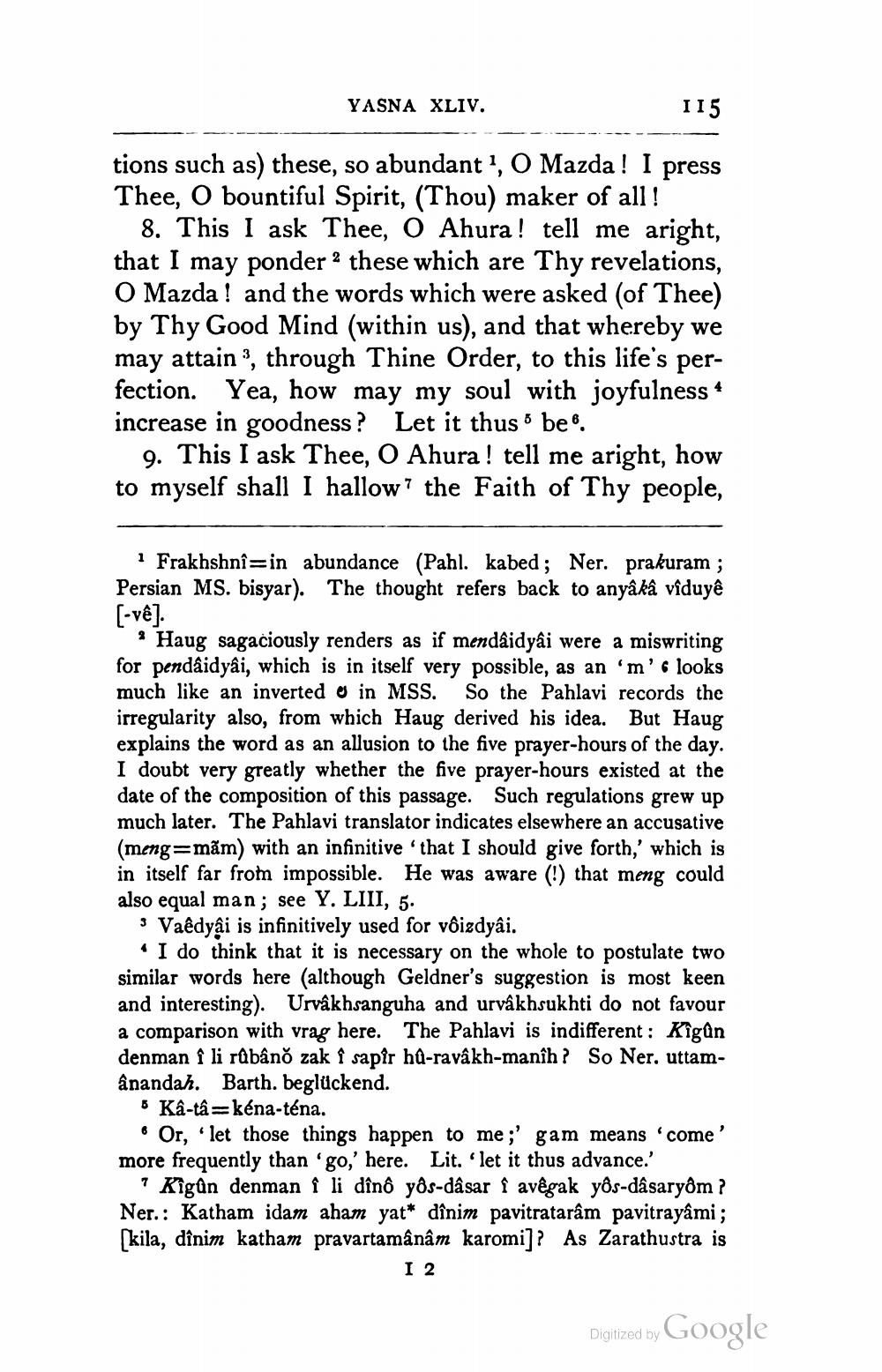________________
YASNA XLIV.
115
tions such as) these, so abundant ?, O Mazda! I press Thee, O bountiful Spirit, (Thou) maker of all !
8. This I ask Thee, O Ahura! tell me aright, that I may ponder 2 these which are Thy revelations, O Mazda ! and the words which were asked (of Thee) by Thy Good Mind (within us), and that whereby we may attain?, through Thine Order, to this life's perfection. Yea, how may my soul with joyfulness * increase in goodness? Let it thus be.
9. This I ask Thee, O Ahura ! tell me aright, how to myself shall I hallow? the Faith of Thy people,
1 Frakhshnî=in abundance (Pahl. kabed; Ner. prakuram ; Persian MS. bisyar). The thought refers back to anyâkâ vîduyê [-vê].
* Haug sagaciously renders as if mendaidyâi were a miswriting for pendaidyâi, which is in itself very possible, as an 'm' looks much like an inverted o in MSS. So the Pahlavi records the irregularity also, from which Haug derived his idea. But Haug explains the word as an allusion to the five prayer-hours of the day. I doubt very greatly whether the five prayer-hours existed at the date of the composition of this passage. Such regulations grew up much later. The Pahlavi translator indicates elsewhere an accusative (meng=mām) with an infinitive that I should give forth,' which is in itself far from impossible. He was aware (!) that meng could also equal man; see Y. LIII, 5.
3 Vaêdyâi is infinitively used for vôizdyâi.
+ I do think that it is necessary on the whole to postulate two similar words here (although Geldner's suggestion is most keen and interesting). Urvâkhsanguha and urvâkhsukhti do not favour a comparison with vrag here. The Pahlavi is indifferent: Kigan denman i li rûbâno zak i sapir hû-ravâkh-manîh? So Ner. uttamanandah. Barth. beglückend.
• Ka-tâ=kéna-téna.
o Or, let those things happen to me;' gam means 'come' more frequently than 'go,' here. Lit. ' let it thus advance.'
? Kigūn denman î li dînê yôs-dâsar î avêgak yos-dâsaryôm ? Ner.: Katham idam aham yat* dînim pavitratarâm pavitrayâmi; [kila, dînim katham pravartamânâm karomi]? As Zarathustra is
I 2
Digitized by Google
Digitized by




